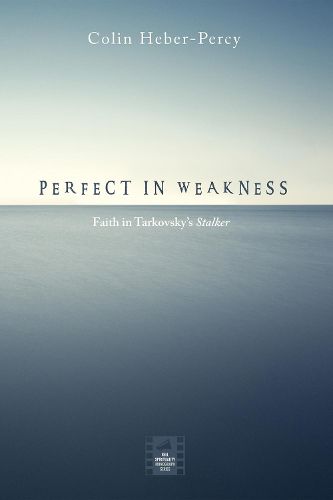Readings Newsletter
Become a Readings Member to make your shopping experience even easier.
Sign in or sign up for free!
You’re not far away from qualifying for FREE standard shipping within Australia
You’ve qualified for FREE standard shipping within Australia
The cart is loading…






This title is printed to order. This book may have been self-published. If so, we cannot guarantee the quality of the content. In the main most books will have gone through the editing process however some may not. We therefore suggest that you be aware of this before ordering this book. If in doubt check either the author or publisher’s details as we are unable to accept any returns unless they are faulty. Please contact us if you have any questions.
Three men go on a risky journey through a forbidden Zone in search of fulfillment. They fail. They come home. The end. The plot of Tarkovsky’s Stalker is a joke. Taking its title from 2 Corinthians, Perfect in Weakness explores Stalker as a ludic parable. And the subject of this parable is faith. Faith as folly, faith as a dangerous, last-ditch attempt to attain the unattainable. To fail, to fail again, and to carry on regardless. Stalker is about crossing borders, boundaries, conventions. To transgress, to disrupt, to deconstruct is the dark impulse behind Tarkovsky’s personal vision. It is also the illicit, revolutionary message at the heart of the gospel: tear down this temple, and have faith. Like one of Deleuze’s rhizomes, or David Tracy’s fragments, Perfect in Weakness aims to throw out thoughts, ideas, and connections in unexpected (even unintended) directions, drawing new and unlikely texts into the field of film theology–Patristic thought, Christian Neoplatonism, and Renaissance literature. Perfect in Weakness suggests we see cinema itself as the ultimate apocalyptic art form–letting light into the darkness, and then throwing it on a screen.
$9.00 standard shipping within Australia
FREE standard shipping within Australia for orders over $100.00
Express & International shipping calculated at checkout
This title is printed to order. This book may have been self-published. If so, we cannot guarantee the quality of the content. In the main most books will have gone through the editing process however some may not. We therefore suggest that you be aware of this before ordering this book. If in doubt check either the author or publisher’s details as we are unable to accept any returns unless they are faulty. Please contact us if you have any questions.
Three men go on a risky journey through a forbidden Zone in search of fulfillment. They fail. They come home. The end. The plot of Tarkovsky’s Stalker is a joke. Taking its title from 2 Corinthians, Perfect in Weakness explores Stalker as a ludic parable. And the subject of this parable is faith. Faith as folly, faith as a dangerous, last-ditch attempt to attain the unattainable. To fail, to fail again, and to carry on regardless. Stalker is about crossing borders, boundaries, conventions. To transgress, to disrupt, to deconstruct is the dark impulse behind Tarkovsky’s personal vision. It is also the illicit, revolutionary message at the heart of the gospel: tear down this temple, and have faith. Like one of Deleuze’s rhizomes, or David Tracy’s fragments, Perfect in Weakness aims to throw out thoughts, ideas, and connections in unexpected (even unintended) directions, drawing new and unlikely texts into the field of film theology–Patristic thought, Christian Neoplatonism, and Renaissance literature. Perfect in Weakness suggests we see cinema itself as the ultimate apocalyptic art form–letting light into the darkness, and then throwing it on a screen.